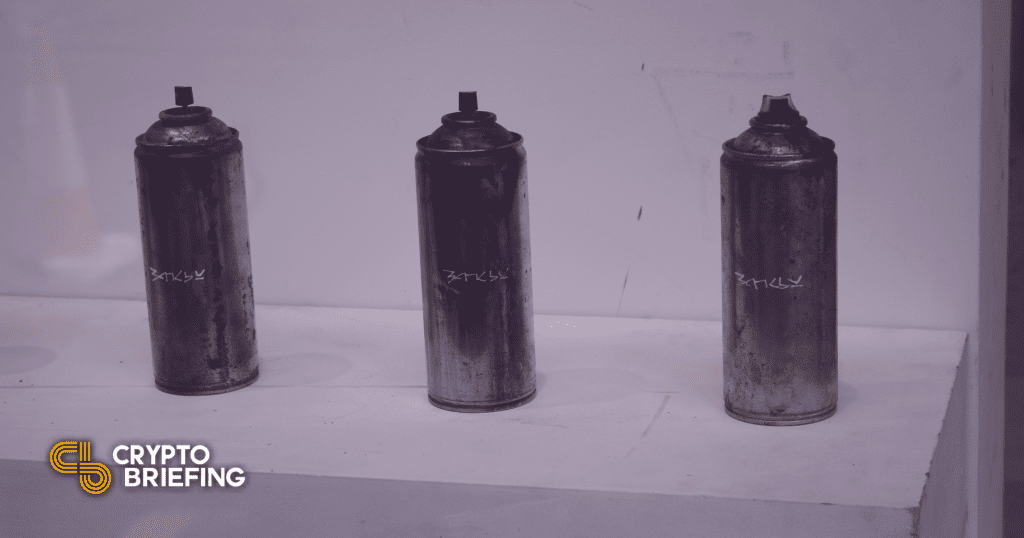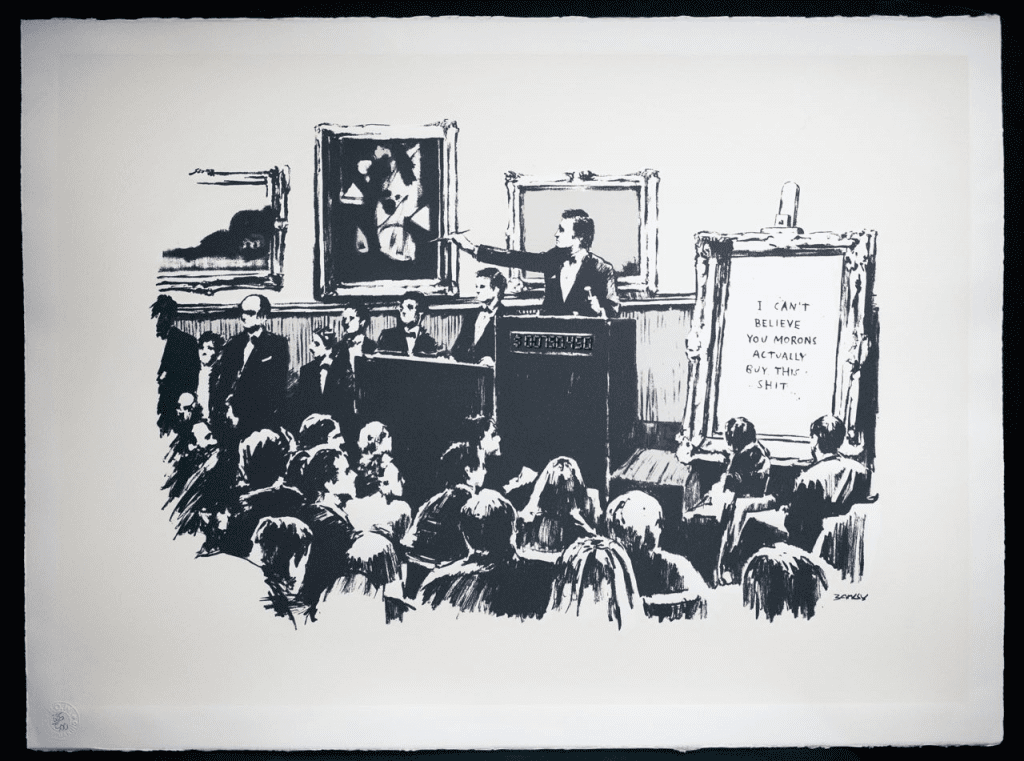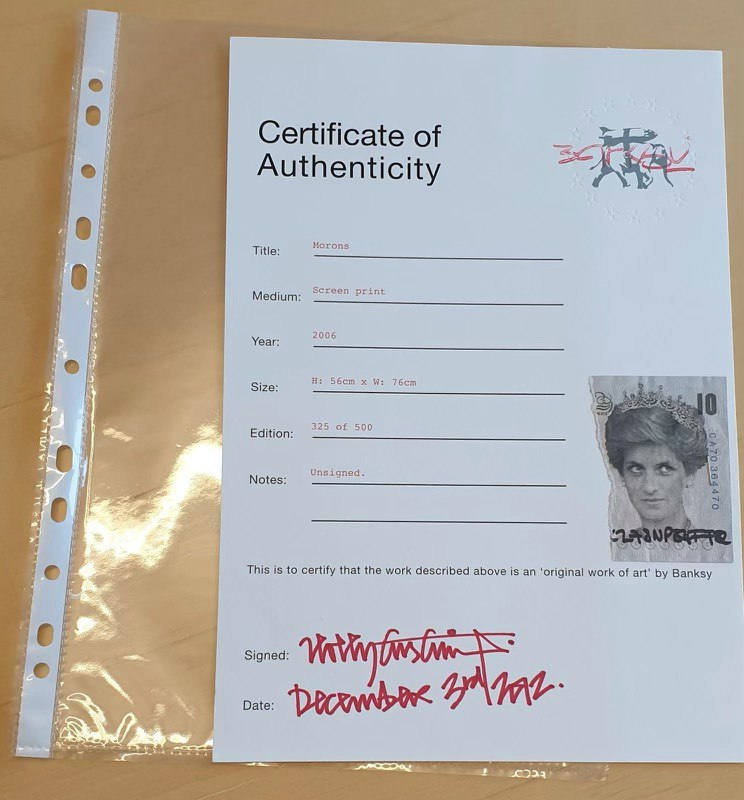
Shutterstock cover by Lorna Roberts
Banksy Original Artwork Burned, Tokenized as NFT on Ethereum
A group of crypto fans has burned an original piece of Banksy artwork to create an NFT. The piece will be auctioned on OpenSea.
Even if Banksy isn’t ready to join the NFT boom, one group is taking extreme measures to tokenize his work.
Banksy Piece Burned for NFT
A group who describe themselves as “crypto enthusiasts” has burned and digitized an original piece of Banksy artwork.

According to a press release, the group, whose identities are currently unknown, met in Brooklyn, New York, to burn an original of Banksy’s “Morons.” The piece first came out as a screenprint in 2006, and it shows an auctioneer conducting a sale for a piece of artwork that reads, “I can’t believe you morons actually buy this shit.”
“Morons” was initially released in an edition of 100 in 2006. The prints were sold for $500 each. Banksy’s printer Picture of Walls re-edited “Morons” in three new colors in 2007; one sold for $84,494.79 (£60,480) in a Sotheby’s auction last year.
The team behind the stunt shared two photos with Crypto Briefing: one of the piece itself and another of a certificate of authenticity. The certificate shows it’s edition 325 of 500, suggesting it was part of the Picture of Walls run. The group says that the certificate was provided by Pest Control, Banksy’s official authenticator.

The NFT buyer can claim the certificate within two weeks of the sale. After that, the group says, it will be burned like “Morons” itself was.
The tokenization of a burned piece of fine art is a first for the NFT space, which has been gathering a significant amount of tailwind this year. Various celebrities and musicians have adopted NFTs as they discover the technology. The popular digital artist Beeple has begun to cement his place alongside the traditional art world’s greats.
His “Everydays: The First 5000 Days” piece is currently on sale at Christie’s; bidding is at $3.25 million at the time of writing.
Though the real Banksy has not yet made a known move onto the blockchain, his work has been a reference for some using NFTs to share their artwork. In February, an artist using the alias “Pest Supply” made a small fortune by releasing a collection of work that drew heavily from Banksy’s signature style.
One piece featured an art canvas with the phrase “I can’t believe you morons actually buy this NFT shit,” in a clear reference to “Morons.”
According to the press release, the item will be minted through SuperFarm and auctioned as a unique piece on OpenSea, and a portion of the proceeds will be donated to charity. Updates on the NFT, including a stream of the burning, can be found on the group’s Twitter page.
Banksy, Street Art Legend
Banksy is one of the world’s most famous artists, regarded as a pioneer in the street art world. He’s best known for his satirical socio-political commentary, which he typically depicts using a distinctive stenciling technique.
He’s been active since the 1990s and found international fame throughout the 2000s, leading many of his pieces to skyrocket in value. He’s also known for his audacious stunts. In 2018, he arranged for a painting of his iconic “Girl With Balloon” piece to pass through a shredder seconds after it had sold for $1,397,070 (£1 million) at a Sotheby’s auction.
He famously once said:
“The art world is the biggest joke going. It’s a rest home for the overprivileged, the pretentious, and the weak.”
Despite Banksy’s enduring popularity, his true identity has never been revealed.
The group behind the burned Banksy NFT concluded their announcement by saying that they hope to “spur a new age in the world of art where artistic works can live on digitally forever.”
Disclosure: At the time of writing, the author of this feature owned ETH, and a number of other cryptocurrencies.
